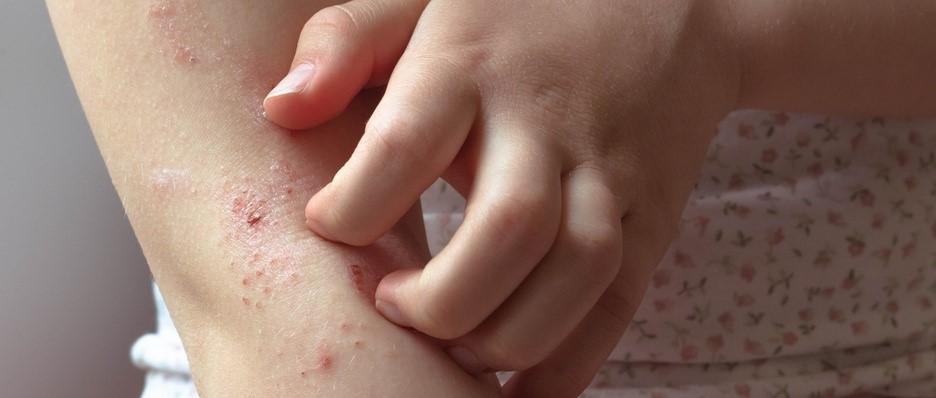
How to wash your hands if you have eczema or dry skin
Peer reviewed by Dr Sarah Jarvis MBE, FRCGPLast updated by Sally TurnerLast updated 26 Jan 2023
- DownloadDownload
- Share
Since Covid we appreciate the importance of regularly washing and sanitising our hands. However, for people with skin conditions such as eczema and psoriasis, this can cause painful flare-ups. We look at how to take care of your hands if they're feeling dry and irritated.
In this article:
Hand washing is one of the most effective ways to reduce the spread of infection. But for people with skin conditions, frequent washing can trigger skin damage and exacerbate symptoms. Even those of us with healthy skin may find that alcohol-based hand sanitisers and harsh soaps can dry out the hands, causing irritation.
"Repeated exposure to water and use of soap, alcohol hand gel, and other detergents can cause what is known as irritant contact dermatitis - a form of eczema," says Dr Nick Levell of the British Association of Dermatologists (BAD). "Irritant contact dermatitis can cause the skin to itch, become sore and red, and develop small blisters or painful cracks. If you already have dry skin either from a skin condition, from medication (such as isotretinoin) or because you are washing your hands more than normal then you may be particularly susceptible to this."
Of course, we all need to follow medical advice and wash our hands regularly. However, it's important to moisturise too, say dermatologists; if the skin's outer barrier layer becomes cracked or irritated this can increase our susceptibility to irritants and infection.
Continue reading below
All about emollients
Emollients (moisturisers) are a mixture of two liquids - a plant, fruit or mineral oil mixed with water to make a lotion, cream or ointment. Using an emollient will not prevent your soap or hand sanitiser being effective.
"Emollients are an essential part of treating hand dermatitis," says Levell. "They help repair the damaged outer skin and lock moisture inside the skin, making it soft and supple again. They should be applied after handwashing, repeatedly through the day, and whenever the skin feels dry."
You may find it useful to apply a generous layer of emollient to your hands just before bedtime, wearing a pair of clean cotton gloves to sleep in to maximise benefit and reduce mess.
Which emollient should I choose?
Be wary of perfumed hand creams if your skin is dry and irritated; go for something hypoallergenic that is highly moisturising. Emulsifying ointment, Cetraben, Doublebase, E45 cream or Aveeno products may be useful, or ask your pharmacist for advice.
How should I apply an emollient?
If the product comes in a tub it's best to remove it with a spoon (rather than your fingers) to avoid introducing infection into the tub. For people with skin conditions who use steroid creams, the BAD recommends applying topical steroids 'either 20 minutes before emollients, or 20 minutes afterwards'. Never use topical steroids to moisturise dry skin - they should only be used on active areas of dermatitis.
Do emollients have side effects?
Greasy emollients can warm the skin, which can sometimes make itching worse if you have a pre-existing skin condition. However, the BAD says paraffin-based emollients rarely cause allergy, and are: 'the best choice if you are worried that your emollients might be worsening your dermatitis.' Do be aware that paraffin-based emollients are flammable and must be kept away from lights and flames.
Patient picks for Eczema

Skin, nail and hair health
Why eczema itches - and how to stop it
Itchiness is one of the most uncomfortable symptoms of eczema - and the urge to scratch can be unbearable. Itchy skin can also lead to sleep problems and make it hard to concentrate, but scratching can make the skin feel sore and lead to infections. So what can you do to ease the itchiness of eczema?
by Lydia Smith

Skin, nail and hair health
Discoid eczema
Eczema (dermatitis) is a term used to describe conditions where there is inflammation of skin. There are several types of eczema. Discoid eczema is one type which causes round or oval red patches of inflamed skin. The cause is uncertain. Treatment includes regular use of emollients to moisturise your skin, steroid creams to reduce inflammation and treatment of any infection of the affected skin.
by Dr Philippa Vincent, MRCGP
Tips to prevent sore hands
It is possible to maintain good hand hygiene and care for your skin at the same time. Many products are formulated for dry and delicate skin and can help you avoid painful, cracked hands.
Soap substitutes
Soap substitutes, such as aqueous cream and some Dermol or Oilatum products are widely recommended by doctors for people with eczema. That's because soap can dry your skin out, while soap substitutes provide moisture to the skin and minimise the risk of irritation and dryness.
Dry your hands fully
After washing your hands pat them dry, don't rub, advises Levell. Viruses and bacteria are transferred more easily between wet hands and moisture left between fingers can cause soreness and chapping.
Use plenty of moisturiser
Apply a moisture-rich emollient after hand washing or applying hand sanitiser - once the alcohol gel has dried.
"Some people find overnight moisturising treatments beneficial," adds Levell. "Apply a generous layer of a plain moisturiser just before you go to bed, then put on a pair of clean cotton gloves and leave overnight."
Use gloves when appropriate
If you're using cleaning products, shampooing hair or preparing foods that might irritate the hands - such as citrus fruits, garlic or chillies - use gloves.
"Wearing gloves that provide a barrier, such as nitrile gloves which are available from chemists or from online stores, will help to keep the skin's barrier intact," advises Levell.
Heat and sweating can make dermatitis worse, so only wear non-cotton gloves for short periods to carry out a particular task. Consider using cotton-lined gloves or cotton inner gloves to reduce sweating and make sure they are dry inside.
Continue reading below
Further help and advice
"If you have severe hand dermatitis or suspect an infection - for example, your skin is oozing - you may need advice from your GP and prescription treatments to reduce inflammation," advises Levell.
If you don't have an ongoing skin condition, but you have dermatitis as a result of frequent hand washing and sanitising, your pharmacist may suggest short-term use of a mild topical steroid such as hydrocortisone cream.
The British Association of Dermatologists and the British Skin Foundation have more information and resources on their websites.
Article history
The information on this page is peer reviewed by qualified clinicians.
26 Jan 2023 | Latest version
13 Apr 2020 | Originally published
Authored by:
Sally Turner

Ask, share, connect.
Browse discussions, ask questions, and share experiences across hundreds of health topics.

Feeling unwell?
Assess your symptoms online for free